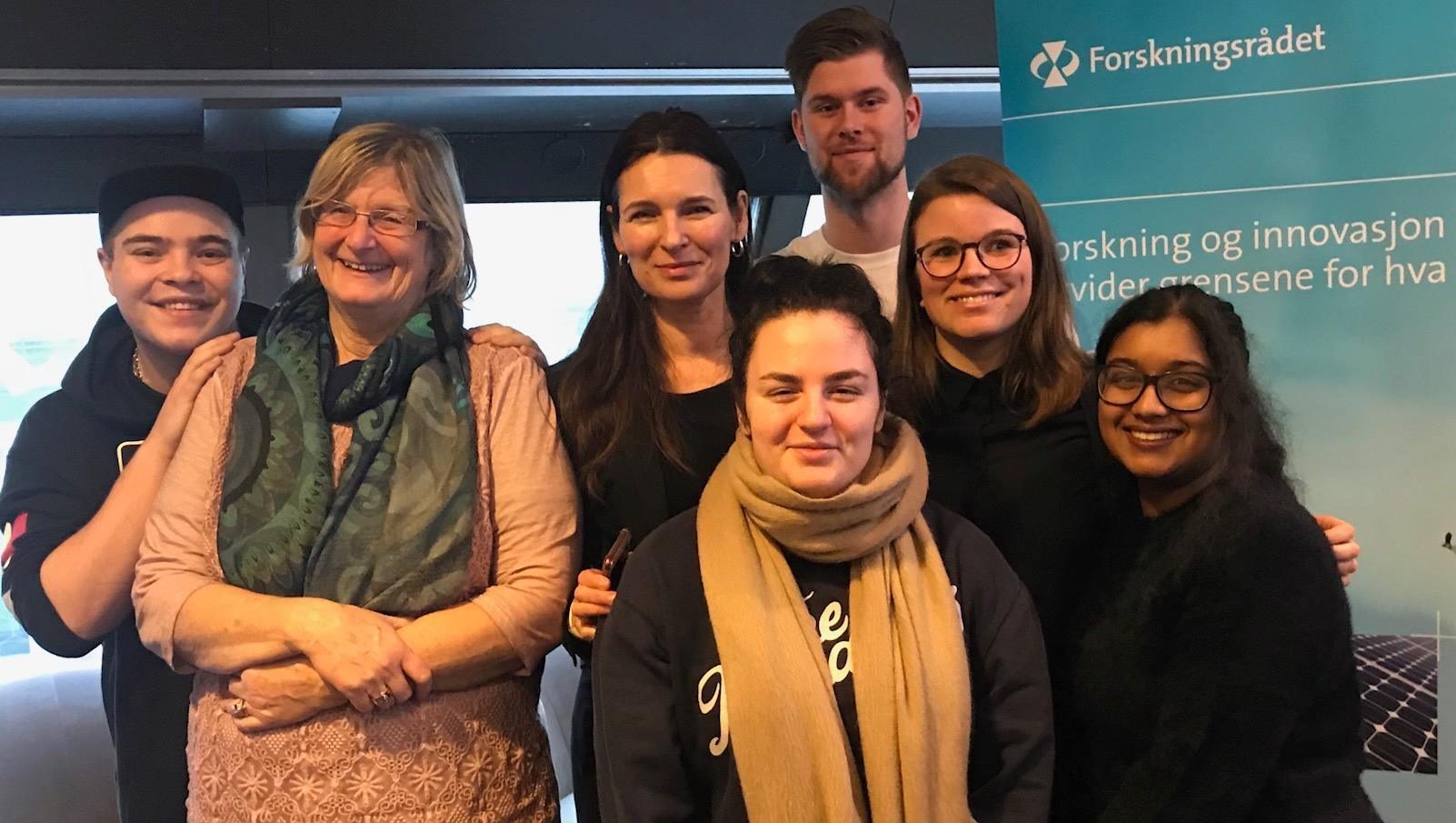DISSEMINATION: PhD-candidate Ida Juhasz and Prof. Marit Skivenes gave talks at seminar in Oslo.
PHOTO: PhD-fellow Ida Juhasz (2nd from the right) together with professor Marit Skivenes, researcher Elisabeth Backe-Hansen and pro’s from Forandringsfabrikken (The Change Factory). CREDIT: Forandringsfabrikken.
– In 71 per cent of the cases, concern for the mental health of the mother is the main reason for care order removal of newborns in Norway. This may contrast the previous assumption that drug and alcohol addiction is the main cause of intervention. However, the cases are nonetheless complex, and one concern often appears alongside another.
This was a central preliminary finding presented by PhD-fellow Ida Juhasz to researchers and central actors from the ministry, directorate and child welfare office at a seminar in Oslo.
Juhasz was invited together with prof. Marit Skivenes to talk about their research on the child protection services at the seminar, hosted by the Norwegian Research Council.
– Another interesting finding is that in every fourth case, the parents actually consent to placement. Also, the majority of parents involved in care order removals cases have lost the care of previous children, and almost half of the parents have a background from the child protection services themselves.
READ: Article about Juhasz’ research from forskning.no (Norwegian only)
In her PhD-project, Juhasz studies the care order removals of newborns, which has its legal basis in the Norwegian Child Welfare Act. She is looking at specific cases from 2012 – 2016 to see how the removals are justified.
She initially began to study the mothers background, and will later look into the background of the father. So far, Juhasz have looked at cases from 2015 and 2016 – 58 in total. This was her first public presentation of preliminary findings from the project.
– It was a very exciting experience! For me, it was an opportunity to talk about my project to a larger audience, and also get valuable feedback.
READ: Findings from ‘Legitimacy and Fallibility in Child Welfare Services’ (Norwegian only)
Other speakers at the seminar included researcher Elisabeth Backe-Hansen from OsloMet, as well as pro’s (young users of the welfare systems) from Forandringsfabrikken who shared their experiences with the Child Protection Services.

